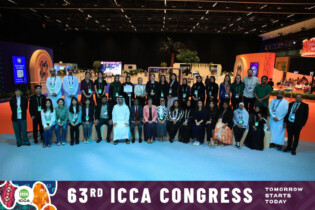Minister of Tourism, Patricia de Lille and Airbnb released a joint media statement announcing the signing of a Memorandum of Understanding (MoU) between Tourism and Airbnb to enhance inclusive tourism growth.
The MoU was signed on 29 August, and will see the two parties work closely to advance tourism services aimed at growing tourism in South Africa and creating more jobs in the sector.
In terms of the MoU, Airbnb will collaborate with the Ministry of Tourism through:
1. A national registration system for Short Term Rentals
- A national database, as per section 6 of the Tourism Act 2014, will be established for short term rentals in South Africa to provide transparency into the short-term rental market.
- The sharing of information on international best practice regarding Short Term Rentals, the registration system thereof, and the policy regulations worldwide by Airbnb will help the Department of Tourism to develop a position on short term rentals, based not only on Airbnb input, but input across the industry, to ensure fairness and transparency.
2. The Airbnb Entrepreneurship Academy (Skills Development):
- Airbnb and the Ministry of Tourism will collaborate on the Airbnb Entrepreneurship Academy, a skills development programme focused on spreading the benefits of tourism to historically disadvantaged individuals by lowering barriers to entry and providing economic empowerment.
4. Tourism Insights through the City Portal:
- Access to an exclusive portal built for governments and tourism organizations that provides locally specific data and mutual sharing of knowledge and insights.
5. Collaboration at the Airbnb Africa Travel Summit.
- The Summit aims to bring together influencers, innovators and change makers to discuss how to utilise technology to drive a more inclusive and sustainable travel future in Africa.
The Minister will present the official welcome note at the Airbnb Africa Travel Summit, which will take place in Johannesburg on 23 to 24 October 2023.
“This MoU seeks to grow the collaboration between government and the private sector as it is our collective responsibility to grow and enhance the tourism sector. As government, if we want to significantly grow tourism and its contribution to the economy and job creation, collaboration with the private sector is vital. We are delighted to be the first African Ministry of Tourism to sign a collaborative MoU with a successful global company such as Airbnb,” Minister de Lille said.
“We are delighted to be the first African Ministry of Tourism to sign a collaborative MoU with a successful global company such as Airbnb.”
“By leveraging Airbnb’s global reach and understanding of the market, this collaboration seeks to create a positive impact on local communities, travellers, and the tourism industry as a whole. The primary goal of this collaboration is to develop a relationship between the Ministry, its department and entity, and Airbnb, to harness and drive tourism domestically and internationally. As shared in the Department’s Green paper, insufficient information is available about the unregulated Short Term Rental subsector, and this hampers informed policy decision making. Access to the Airbnb data can only assist in informing better decisions,” Minister de Lille added.
As part of the MoU, the parties will have regular engagements to evaluate opportunities for strategic collaboration on driving inclusive tourism and ensuring fair and proportionate regulation of short-term rentals.
“The Airbnb platform can help anyone, anywhere, to become a tourism entrepreneur, and we hope to continue to break down systemic barriers to entry and enable more South Africans to participate in the sector.”
Velma Corcoran, Regional Lead Middle East Africa at Airbnb, says, “We look forward to working together with the Department of Tourism to help build a more inclusive and sustainable tourism economy in South Africa. The Airbnb platform can help anyone, anywhere, to become a tourism entrepreneur, and we hope to continue to break down systemic barriers to entry and enable more South Africans to participate in the sector.”
“We also know from our work with the Airbnb Entrepreneurship Academy, that together, we can make a tangible difference and enable more people, in more places, to benefit from tourism,” Velma adds.
In line with the Tourism Sector Recovery Plan
The signing of this MoU is in line with the aims of the Tourism Sector Recovery Plan which is a key part of the country’s Economic Reconstruction and Recovery Plan.
The Tourism Sector Recovery Plan (TSRP) was adopted by Cabinet in March 2021 to facilitate the recovery of the sector to preserve jobs and livelihoods, facilitate new job opportunities, match demand and supply, and strengthen transformation. The Plan is a product of a collaborative effort with key stakeholders from government, the private sector and other social partners.
Lowering the barriers into tourism
Platforms like Airbnb lower the barriers of entry into the tourism economy by connecting anybody with a space or a passion, with a marketplace of millions who are looking for unique experiences and authentic human connections, easily and at no cost. In a recent survey, half of Hosts across South Africa said the money they earn from hosting helps cover the rising cost of living, and over a third said the additional income helps them make ends meet.
The typical South African Host earns just over R36,000 – equivalent to approximately one month’s additional pay for the average income earner – by renting their space on Airbnb.
Airbnb has invested millions in driving inclusive tourism, and through its Entrepreneurship Academy, delivers training programmes and interventions that help more people from historically rural and township disadvantaged communities, particularly women and youth, to benefit from the tourism economy.
Under the MoU, Airbnb has committed to continuing to roll out its Entrepreneurship Academy by providing Airbnb platform-related information, training, and tools. The Department will provide input into the criteria for participation in the Academy, where and when to roll out the programme, as well as strategic input into collaborations.
Collaboration and insights
This MoU also provides the Department with important insights into short term rental activity. By tapping into Airbnb’s global insights, the Ministry, through the Department, will be better placed to control and regulate Short Term Rentals and thus enhance the tourism economy.
By working together to promote responsible tourism, empower local communities, and enhance the tourism experience, this collaboration has the potential to shape a more sustainable and culturally enriching travel landscape in South Africa. This concept has evolved into a formal Memorandum of Understanding, serving as a testament to the commitment of both parties to a shared vision of responsible and impactful tourism.







